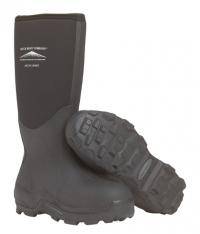
Speaking of rivals: The rivalry between you and Evan Lysacek has been the object of people's attention for many years. What do you think about his becoming the gold medalist?
As a matter of fact, I didn't know he performed so well at the Olympics. While Plushenko was skating, I was talking in the mix zone and certain that he would win. So when the scores were on the monitor and I knew Evan had won, I was shocked. I don't mean anything bad by that--I was simply astonished. I don’t know Evan very well as a person, so I cannot comment on whether or not he is suitable for a gold medal, but he is an excellent athlete who practices really eagerly. If you asked me whether or not I had expected him to be a gold medalist someday, my answer would be no. Nonetheless, he became an Olympic champion. I can only say that he was really good at following the rules of the game to win American judges and officials over to his side. After the Olympics, I knew that I had finished sixth due to the scores given by American and Canadian judges. While the Asian, Russian, and Eastern European judges scored me much better, the North American judges' points lowered my place. I am never diplomatic in order to be liked by judges. In that sense, Evan was very good at the political game.
Will you tell me what you feel about American judge Joe Inman and the email he sent?
The US had done many things to put themselves in an advantageous position before the Olympics, but it was not so obvious until then. His email announced to the world that the US was playing the political game as enthusiastically as any other country. Though I never supported his opinion or policy, at the Olympics I had to represent the same country as he does, and I could have been regarded as the same kind of person he is. I felt really uncomfortable with that. It is said that the US skaters profited from the fact that he officially criticized the abilities of Plushenko and Joubert, but that was not true regarding me. That's because the USFSA pushed Evan and Jeremy Abbott, but not me. I lost respect for Inman as a judge, and I consider the case shameful both for the American people and press.
Do you think that his email influenced the results?
I could say so, for at last Plushenko lost and an American skater won. I thought Plushenko's five components were extremely harshly scored. That was not the case with Joubert, who did not perform well. Inman sent the email to insiders, saying that Plushenko was not such a good skater. There may have been some judges who said to themselves, "I thought the same," and who might then have decided that they would score him differently than before. Inman surely planted a negative impression in the minds of some insiders.
At the 2010 Nationals, Inman scored you unimaginably harshly.
Yes, he scored my components at a three-point level. I was so surprised that I asked an association official about it, and I was told that it was Inman's score. A judge should not give a three-point mark to one of the best skaters of his own country right before the Olympics. For example, very high scores were given to some skaters at the Japan Nationals. That means they announced to the world that those Japanese skaters were so excellent that they received really high scores. These days, even if the foreign national competitions are not broadcast, you can watch them on YouTube or other sites, and those who saw their performances and their scores would be impressed and say, "Wow! Those Japanese skaters are awesome!" Such tactics are very important for figure skating. On the other hand, the US was sending a skater of three-point level to the Olympics. What kind of impression did that give people around the world who follow figure skating?
 Есть ли сейчас катки в Санкт-Петербурге, где за вход не нужно платить?
Есть ли сейчас катки в Санкт-Петербурге, где за вход не нужно платить?
 Есть ли сейчас катки в Санкт-Петербурге, где за вход не нужно платить?
Есть ли сейчас катки в Санкт-Петербурге, где за вход не нужно платить?
 Кто катается на лыжероллерах и сколько?
Кто катается на лыжероллерах и сколько?
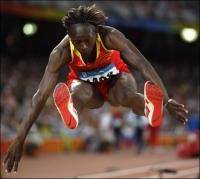 ахах))хДД
ахах))хДД Я
Я
 Биатлонистки какой сборной ВНЕШНЕ вам нравятся больше всего?
Биатлонистки какой сборной ВНЕШНЕ вам нравятся больше всего?
 12 апреля из Москвы, 14го в МИн.Водах, нужны попутчики на трансфер
12 апреля из Москвы, 14го в МИн.Водах, нужны попутчики на трансфер
 Начал кататься в 8 лет, когда его бабушка подарила ему коньки на Рождество. Сначала занимался в хоккейной секции, но вскоре перешел в секцию фигурного катания.
Начал кататься в 8 лет, когда его бабушка подарила ему коньки на Рождество. Сначала занимался в хоккейной секции, но вскоре перешел в секцию фигурного катания.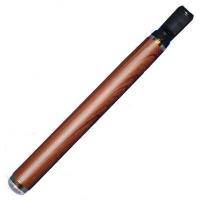 блеееееее зачем курить на катке? особенно касается девушек. отписываем кто что думает
блеееееее зачем курить на катке? особенно касается девушек. отписываем кто что думает
 пишем:
пишем:  Высказываем свое мнение по поводу цен на билеты
Высказываем свое мнение по поводу цен на билеты
 1)Участвует минимум 30 девушек!
1)Участвует минимум 30 девушек! Как там лед?? неразу небыл:))
Как там лед?? неразу небыл:))
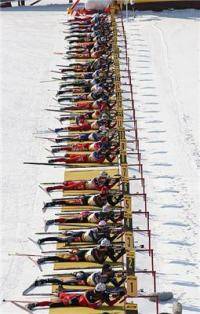 Всем привет)) никто не забыл о том, что у нас сегодня праздник????
Всем привет)) никто не забыл о том, что у нас сегодня праздник???? Если Нет,то почему?
Если Нет,то почему?
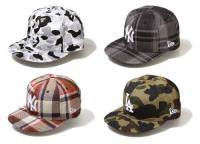 Кто из выбывших пар вам дороже всего?
Кто из выбывших пар вам дороже всего?
 некоторых бы расперло под такой музняк,например меня хД. хотелось бы по разнообразней музню а то весь сезон одно и тоже. я када один катаюсь меня в сон клонит
некоторых бы расперло под такой музняк,например меня хД. хотелось бы по разнообразней музню а то весь сезон одно и тоже. я када один катаюсь меня в сон клонит
 Иван Черезов: «Я бы добавил в программу «Гонки чемпионов» дуэльную стрельбу» - Биатлон - Sports.ru
Иван Черезов: «Я бы добавил в программу «Гонки чемпионов» дуэльную стрельбу» - Биатлон - Sports.ru Speaking of rivals: The rivalry between you and Evan Lysacek has been the object of people's attention for many years. What do you think about his becoming the gold medalist?
Speaking of rivals: The rivalry between you and Evan Lysacek has been the object of people's attention for many years. What do you think about his becoming the gold medalist? вообщем пишем)
вообщем пишем)